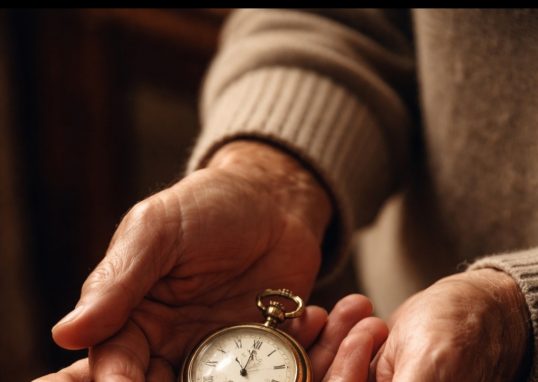
“We do not know what to do, but our eyes are on you.” 2 Chronicles 20:12
Anxiety doesn’t always announce itself. Sometimes it’s a racing heart, a tight chest, or that sudden knot in your stomach when a message notification appears. It can creep in like fog—silent but heavy—or come crashing in like a wave you didn’t see coming. You lie awake at night, rehearsing every possible outcome, mentally spinning in circles, trying to gain control but feeling more helpless by the minute. For some, anxiety is a constant hum in the background—a vague uneasiness that never seems to let go. For others, it’s paralysing: breathless, overwhelming, and unrelenting. It might come from trying to do too much at once—juggling work, family, finances, and the expectations of everyone else—while still trying to hold yourself together.
And for many believers, there’s an added burden: guilt. If I really trust God, why do I feel like this? You begin to feel anxious about feeling anxious. And then you wonder if your struggle means you’re somehow failing spiritually.
But here’s the truth that breaks the shame: anxiety is not a sin. It’s a signal. A signal that something inside needs attention. A signal that you’re carrying weight you were never meant to carry alone. A signal to bring your burden to God.
Jehoshaphat was a godly king—not running from God, but leading people toward Him. Still, one day three enemy armies united and came against Judah. The attack was swift, the pressure unbearable, and scripture tells us plainly: Jehoshaphat was afraid. But fear didn’t have the final say. The next line tells us he resolved to seek the Lord. He called a fast, gathered the people, and lifted up a prayer that still resonates today: “We are powerless against this vast army that is attacking us. We do not know what to do, but our eyes are on you.” He didn’t have a strategy. He had a posture. And that posture—eyes lifted in dependence—is what turned fear into faith.
Even Jesus was not a stranger to emotional agony. In Gethsemane, the night before the cross, He confided to His disciples, “My soul is overwhelmed with sorrow to the point of death.” His anguish was so deep that He sweat drops of blood. And yet, He didn’t withdraw or shut down—He prayed. “Father, if you are willing, take this cup from me. Yet not my will, but yours be done.”
This wasn’t spiritual failure. It was holy surrender. His sorrow was not a failure of faith—it was the weight of obedience in the face of suffering. Jesus didn’t dismiss the weight of what He was facing. He didn’t condemn His own sorrow. He brought it, with honesty and trust, to the Father. And so must we.
The Greek word often used in the New Testament for anxiety is merimnaō—a word that means to be pulled in different directions, or to dwell on fearful possibilities. It’s not just worry; it’s a kind of fear-based meditation. You rehearse what could go wrong instead of resting in who God is. But anxiety doesn’t need to be ignored or judged. It needs to be listened to—because it’s pointing you somewhere. It’s a signal that it’s time to take your burden to God.
“Cast all your anxiety on him, because he cares for you.” If it’s on your mind, it’s already on God’s heart.
When anxiety rises, you don’t have to power through or pretend you’re fine. You pray. That’s what Jehoshaphat did. That’s what Jesus did. Prayer isn’t reserved for those who have it together—it’s where the unravelled begin to heal. You don’t need perfect words. You just need honest ones. “Help.” “I’m afraid.” “I don’t know what to do.” That’s enough. He hears.
And after you’ve prayed, don’t rush. Jehoshaphat and the people of Judah stood before the Lord. They waited. Stillness isn’t weakness—it’s trust. It says, “I’ll move when you move.” Sometimes the answer doesn’t come immediately, but peace begins to return when we stop striving and let God be God. And before the breakthrough came, they worshipped. Jehoshaphat sent singers ahead of the army, declaring, “Give thanks to the Lord, for His love endures forever.” And as they praised, God moved. Their enemies turned on each other. The battle was won, not with swords, but with songs.
You may feel surrounded. You may be exhausted from trying to hold everything together. But you are not alone. Jehoshaphat didn’t know what to do—but he fixed his eyes on God. Jesus, in His darkest hour, surrendered to the Father’s will. And so can you.
You don’t have to figure everything out. You just have to bring everything to God.
You may not know what to do—but you know where to look. And that’s enough.
Lord, I confess that I feel anxious—about my future, my family, my limitations. Sometimes the pressure is too much and I don’t know what to do. But like Jehoshaphat, I choose to lift my eyes to you. Heal my anxious mind. Teach me to pray, to pause, and to praise—even before the battle is over. You are near, and I trust you. In Jesus’ name, amen.

